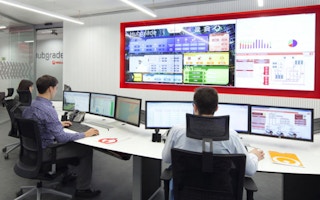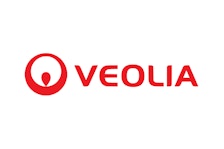More Asian companies are taking steps to shrink their environmental footprints as pressure grows from investors and consumers to green their operations in the Covid-19 era.
When financial services group Citi polled 259 institutional clients across 14 Asian countries earlier this year, it found that 54 per cent of them had developed environmental, social and governance policies and practices, and 40 per cent planned to do so in the next five years.
Furthermore, about 370 Asian firms have set carbon-cutting targets or are in the process of getting their targets approved under the Science-Based Targets Initiative (SBTI), which helps companies cut their emissions in line with the Paris Agreement. Almost half of the businesses signed up to the SBTI this year, a big jump on previous years.
Even as more companies in Asia are making sustainability a priority, however, some of these forward-looking firms may not have concrete plans on how to achieve their goals, while others have declined to provide the specifics of their plans raising questions about their credibility.
Data is the key
Some firms may not have the data that they need to create feasible sustainability plans, said Arnaud Bickert, senior vice president of business development, Southeast Asia, for waste, water and energy management services giant Veolia.
He explained: “When companies come to us to try to achieve their sustainability goals, lack of data is usually the biggest problem. They may know how much water or electricity they are using in total, but they don’t sub-meter and monitor how much they are using for individual processes. That makes it difficult to come up with effective plans.”
While multinational corporations may have engineering teams that can install such granular monitoring systems, small and medium enterprises may not have the expertise or funds to do so, added Thomas Debruyne, the Asia Pacific head of digital transformation for Veolia Water Technologies.
Veolia can assist companies in developing sustainability plans by analysing the data that they have, or by going a step further and putting in place the sensors and systems needed to gather information. “We typically need at least a year’s worth of data to be able to put together credible proposals for improvements,” said Bickert.
“We study the processes, operations, maintenance regimes and more to determine the best combination of technologies that will help clients reduce their utility costs and environmental impact, and make sense in terms of return on investment.”
Veolia also offers a monitoring service through its global Hubgrade centres to refine firms’ water, waste and energy management. Its basic service involves overseeing and optimising existing facilities’ operations.
Its more comprehensive options include the design-build-operate-maintain model, where it also takes charge of designing and constructing new facilities or retrofitting existing ones, and the build-own-operate-transfer model, where it provides the initial financing as well.
It has 64 Hubgrade centres in over 22 countries, including one in Bilbao, Spain, which keeps an eye on more than 2,000 facilities and installations in the country. These span nearly 1,000 buildings, 60 industrial sites, and 20 cooling and heating networks.
Driving change through AI and machine learning
Companies can reap several benefits by outsourcing and centralising the monitoring of their facilities’ operations, Bickert said.
“In Europe, we’ve connected a chain of commercial malls and industrial sites to a Hubgrade centre, which enables us to do things like compare the buildings’ utilities use and help the owner to benchmark their utility usage with the industry standards. We can look at their electricity consumption per operating hour, adjusting for factors like the temperature and the number of people in each mall to see where we can do better,” he said.
By keeping track of facilities’ operations over time, the Hubgrade centres can detect abnormal trends and anomalies, such as increases or spikes in electricity and water usage that may be due to equipment wear and tear or faults, and alert the facilities’ managers to the problems.
Veolia is also working on new optimisation software to boost companies’ resource efficiency, for instance in industrial sites. One programme will use artificial intelligence and machine learning to analyse data collected by sensors on wastewater’s biological composition, to automatically adjust its treatment.
“Depending on the wastewater’s biology, you may be able to reduce the aeration or chemicals needed to treat it. This would be good for the environment and could lead to significant cost savings for the customer too,” said Debruyne.
He noted that companies will face increasing scrutiny about their environmental footprint, policies, practices and goals, especially in the wake of increasingly severe impacts from climate change.
“If you look at the food and beverage industry, more investors and financial institutions now consider a firm’s ESG performance as a key factor in deciding whether to invest, as business continuity is very much pegged to environmental sustainability. Prolonged droughts not only limit water supply for production, but also affect food supply chains and raw materials. So the more water resilient a company is, the better it is,” he said.
Businesses need to collect data on their operations, make sense of it, and use the insights to implement changes to boost their sustainability, he continued, adding that this will attract investors and consumers, enhance their long-term viability, and help the environment.
“Today, data is the lifeblood of industries. You can’t know what you’re not monitoring, and you can’t change what you don’t know. You need data to be able to make the right decisions.”


















